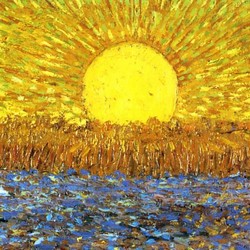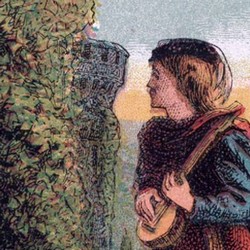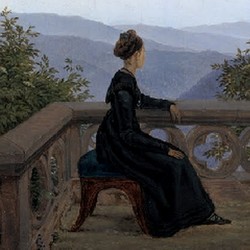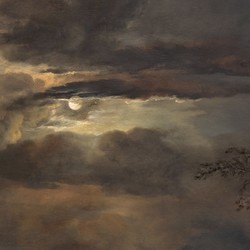- Details

Can you separate the art from the artist? A few months ago, I listened to a radio program (Musiques empoderades, Catalunya Música) where this matter was discussed. Some guests thought that the work doesn't necessarily reflect the darkest aspects of the creator's life, while others maintained that the work is part of life, and that both are inseparable.
- Details

Something happened to me this week that had never happened: once the article was written, I realized that I didn't have the lyrics of the song, and I wasn't able to find it anywhere. You're probably thinking that I should have checked the poem before, and you're right; I'm afraid I was overconfident. Mental note: Don't start an article before you're sure you have the poem of the song. The point is, I can't post a song without the lyrics, and here I am [...]
- Details

In 1803, a play called Lacrimas was published in Berlin. The plot was complex and implausible as the plots of Shakespearean comedies, disseminated at that time in Germany thanks to the translations of August Wilhelm Schlegel. There were misunderstandings, impossible love between Muslims and Christians, and sudden plot twists that changed the parents or religion of some characters, so that love stories had a happy ending and peace and fraternity reigned between them.
- Details

"Carpe diem, quam minimum credula postero." (Loosely translated, "Seize the day, put no trust in tomorrow". This sentence, especially the first words, carpe diem, arrived to our days probably meaning something different from its original meaning. We use it as a hedonistic motto, "enjoy now the pleasures of life, and don't think about the consequences", while it originally talked about not disregarding what the present offers in pursuit of an uncertain future.
- Details

I've been listening to a Lied more often than it would be reasonable these days. The usual readers know that one way to get out of my head that kind of earworms is by sharing them with you; I already shared this song years ago, but since it was just as a musical illustration and without much explanation, I gave me the all clear to talk about Abendempfindung, the most original Lied by Mozart, the best known (ok, ex-equo with Das Veilchen) and, in my view, the best. Mozart wrote it on 24 June 1787 [...]













